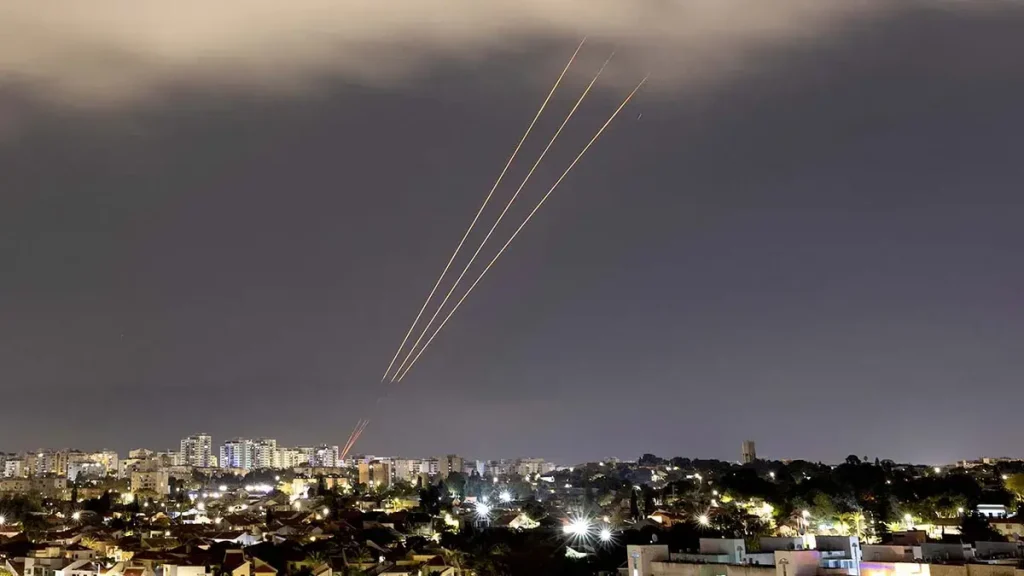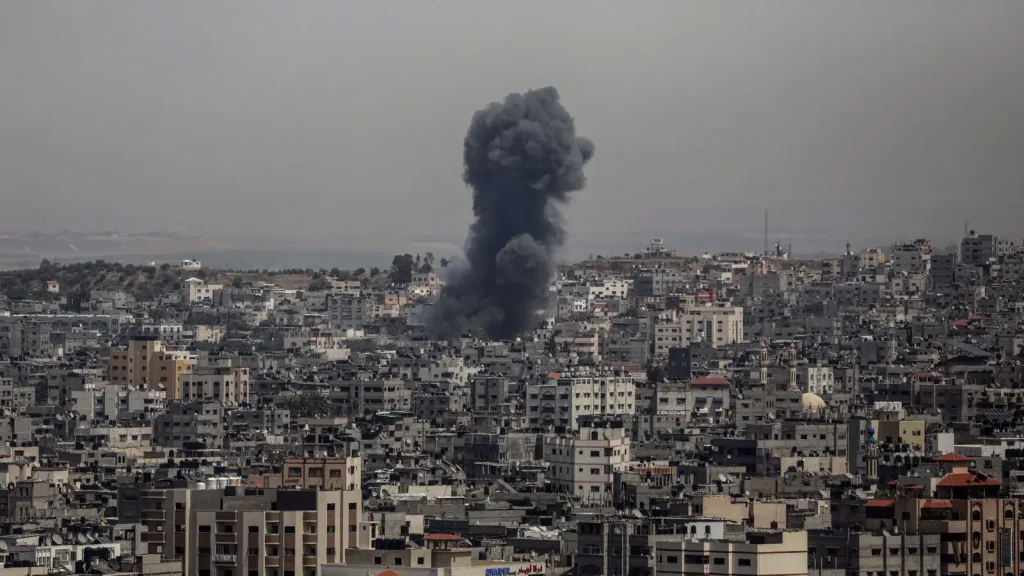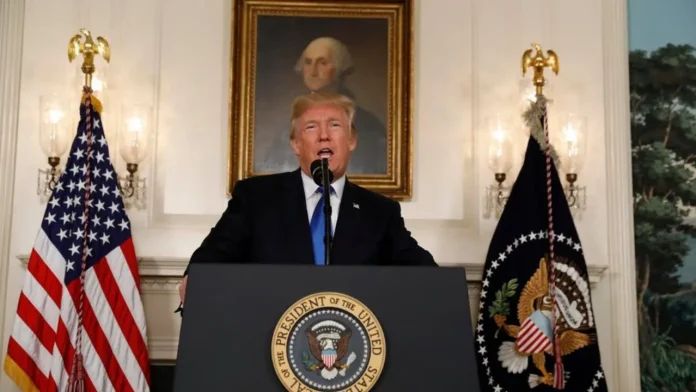Just when the world thought it was catching a breather from wars and warnings, the Middle East decided to remind us all: “Plot twist, everyone!”
What started as military tension between Israel and Iran has now snowballed into a full-on geopolitical blockbuster—with America playing the referee, Russia quietly flipping pages, and every oil barrel sweating harder than a student during board exams.
This isn’t just war—it’s war with layers: religious, economic, strategic, and social.

From airstrikes in Tehran to missile sirens in Tel Aviv, and meme wars on Twitter to oil price jitters in India, everyone’s got popcorn—or panic—depending on where they sit.
Let’s break down the entire drama into digestible (and Google-friendly) pieces, minus the jargon, but with all the spice.
Who’s Doing What in the Iran-Israel Crisis?
| Country | Role/Position | Recent Actions |
|---|---|---|
| Israel | Defensive-offensive posture | Claimed strikes on Iranian targets |
| Iran | Aggressive retaliator | Threatened more drone/missile responses |
| USA | Official “ally” of Israel + silent pressure on Iran | Military presence in Gulf increased |
| Russia | Supporting Iran silently, not directly involved | Diplomacy via backchannel efforts |
| India | Worried about oil prices & global trade impact | Urging peace via diplomacy |
| UAE/Saudi | Silent observers, worried about regional instability | Increasing military alertness |
Israel vs Iran: Why Are They Even Fighting?
This isn’t a Netflix original. The Israel-Iran tension has been brewing for decades:
- Iran supports Hezbollah, Hamas—groups Israel deems as threats.
- Israel continues to strike Syrian regions where Iran has influence.
- Nuclear suspicion: Israel fears Iran is inching towards weaponizing uranium.
- Iran, on the other hand, sees Israel as a Western puppet endangering Islamic sovereignty.
And now? All gloves are off. The latest exchange of drones, cyberattacks, and direct airstrikes has pulled the curtain off this long-simmering animosity.
Impact on India: Why Your Petrol Price May Explode
India doesn’t have time for missiles—it’s busy calculating fuel bills. Here’s how the crisis hits your home:
| Factor | Impact on India |
|---|---|
| Crude Oil Prices | Brent Crude crossed $92—India imports 85% oil |
| LNG Supply | Middle East LNG routes may be blocked |
| Inflation Risk | Cost of essentials may rise |
| Rupee Weakness | Dollar surge due to global panic |
| Stock Market | Nifty and Sensex show red flags |
America’s Role: Peacekeeper or Power Player?
On paper, the U.S. says it wants de-escalation.
In reality:
- U.S. deployed warships near the Persian Gulf.
- Warned Iran with “serious consequences” if nuclear ambitions continue.
- Backed Israel’s right to self-defense (as always).
Many analysts believe the U.S. is using this crisis to pressure Iran into negotiation, or at the very least, prevent a nuclear sprint.
Also, let’s not forget—this is an election year in the U.S. And nothing garners more public attention than foreign conflict and loud diplomacy.
Russia’s “Silent But Strategic” Entry
Russia isn’t dropping bombs—it’s dropping ideas.
Kremlin made no direct statements, but condemned Western interference.
May use this situation to strengthen ties with Iran and divert attention from Ukraine.
Oil diplomacy? Definitely. Russia wants the Middle East distracted so it can expand BRICS control quietly.
Geopolitics is chess—and Putin brought a rook to a missile fight.
What’s Next? Here Are The Possible Scenarios
| Scenario | Likelihood | Outcome |
|---|---|---|
| Full-blown war | Medium | Heavy regional instability, oil shock, refugee crisis |
| Israel-Iran ceasefire | Low | Only if pressure from U.S., UN, and OPEC increases |
| Proxy battles via Lebanon/Syria | High | More regional actors drawn in; Hezbollah activation likely |
| Cyberwar escalation | High | Banks, government servers could become silent victims |
| Global Peace Summit | Very Low | Unless Saudi and UAE join hands as peacemakers |
The Wild Cards: Religion, Oil, and Elections

Let’s talk big picture.
- Religious Factor: Shia-Sunni, Jewish-Islamic undertones make this more than a land dispute.
- Oil Diplomacy: Whoever controls the Strait of Hormuz, controls 30% of the world’s oil.
- Upcoming Elections: Iran and Israel both have domestic political tension—conflict often unites votes.
| What Happened | Summary |
|---|---|
| Iran & Israel fired missiles | Major escalation in military conflict |
| U.S. & Russia intervened | Each backing sides silently or politically |
| Oil prices soared | India among worst-hit countries |
| Ceasefire denied by Iran | Trump’s claim dismissed by Iranian officials |
| What’s next? | Likely more cyberattacks, oil fluctuations, diplomatic talks stalled |
Google-Style FAQs
Q: Will petrol prices go up in July 2025 due to Israel-Iran war?
A: Very likely. Crude oil prices are already seeing a 7% hike.
Q: Is this the start of World War III?
A: No, but it could turn into a major regional war with global economic impact.
Q: How is India affected by Middle East war?
A: Fuel prices, inflation, trade routes, and diplomatic balancing act with U.S., Russia, Iran.
Q: Is it safe to travel to UAE or Qatar now?
A: Most GCC countries are safe but stay updated via embassy alerts.
Why You Should Care Even If You’re Not in the Middle East
War doesn’t knock on every door—but its economic and political shockwaves travel faster than news bulletins.
Whether you’re a trader in Mumbai, a student in Hyderabad, or a chai-wala in Delhi, Iran-Israel tensions might just show up in your fuel bill, your EMI, or your favorite Netflix recommendations being delayed (true story).
Stay informed. Stay alert. And if you’re praying—maybe include a little “please de-escalate” for global leaders.

